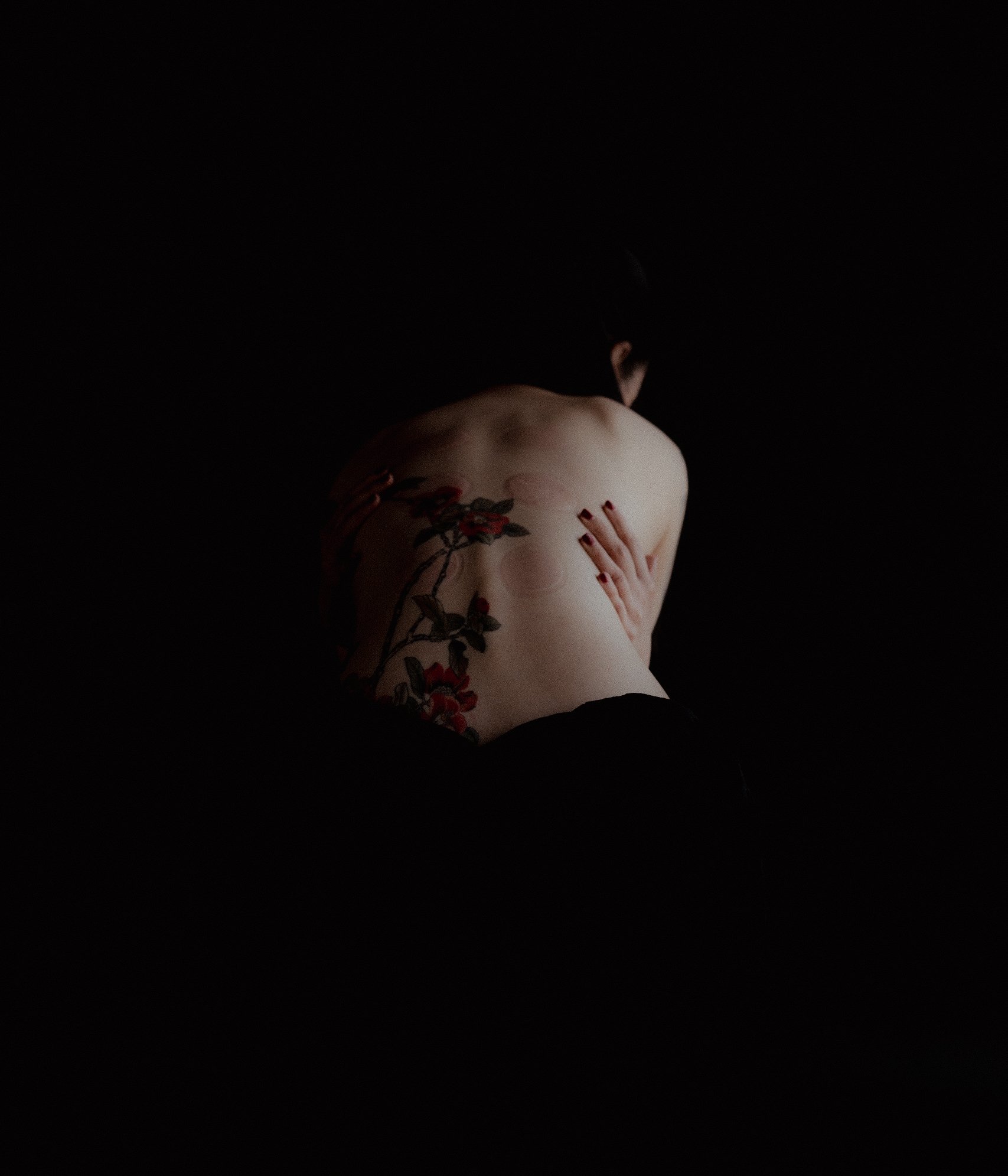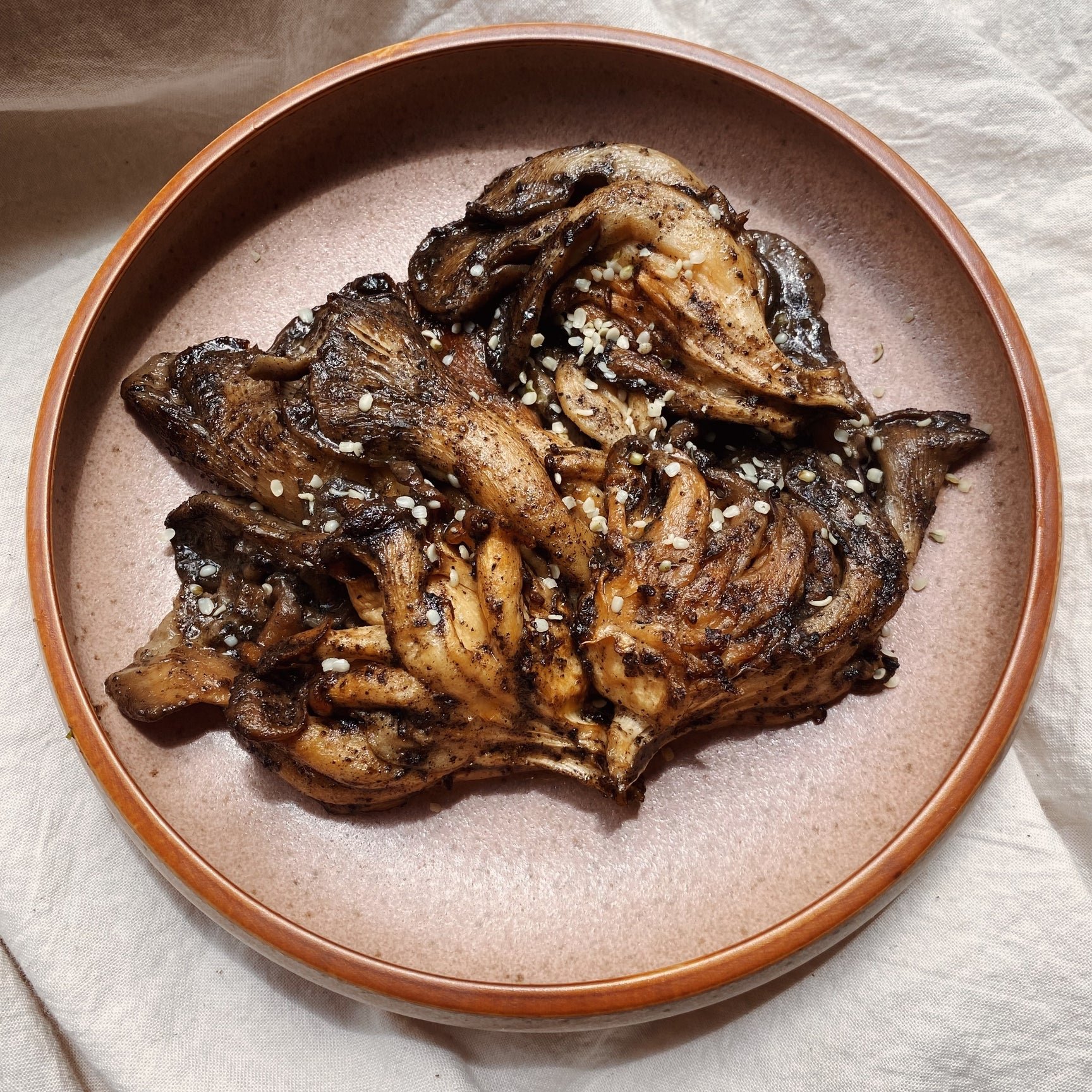Polycystic Ovarian Syndrome-多囊卵巢综合症
Written by: Zoey Gong & Tiffany Yeung
This March, to commemorate International Woman’s Day, we wanted to focus on Women’s health, specifically, Polycystic Ovarian Syndrome (PCOS). PCOS is a complex endocrine disorder associated with menstrual and ovulatory dysfunction. Approximately 1 out of 10 Women have PCOS. A collection of signs and symptoms include irregular or absence of menstruation, hirsutism, thinning hair, acne, infertility, obesity, difficulty losing weight, anxiety, and depression.
Unfortunately, the jury is still out on the definitive cause but research has shown that several factors may be at play. Insulin resistance is often present, high insulin levels may cause ovaries to produce excess androgens and testosterone, which are potential causes of hirsutism, hair loss, and absent ovulation. PCOS patients are also at an increased risk for diabetes, cardiovascular disease, and infertility.
TCM perspective on PCOS
In TCM, PCOS is a result of Qi and Yang deficiency with an accumulation of Phlegm, Dampness accompanied by Blood Stasis. Depending on the varying symptoms and stage of diagnosis patients may fall under the following subgroups: Spleen Qi deficiency, Kidney Yang Deficiency, Phlegm and Dampness accumulation, Liver Qi stagnation (with blood stasis) and Kidney Yin deficiency. Treatment will usually include tonifying the Kidney, resolving and riding Phlegm and Dampness, dispersing stagnated Liver and improving blood flow.
Kidney Yang deficiency symptoms:
Aversion to cold
Cold limbs
Acne
Irregular menstruation
Hirsutism
Obesity
Amenorrhea
Aching, and swelling of lower limbs
Liver Qi stagnation symptoms:
Amenorrhea
Acne
Constipation
Anxiety
Irregular periods
Dry mouth
Hairiness
Phlegm and Dampness symptoms:
Obesity
Weight gain difficulty losing weight
Fatigue
Weakness in limbs
Infrequent/delayed menstruation
Infertility
continuous sputum in the throat
Heavy sensation in the head
When Spleen function is poor, digestion and fluid metabolism becomes sluggish. Dampness is a sign of imbalance, when excess water retains in the body over a period of time it accumulates into something more viscous, Phlegm.
Best Dampness removing porridge
Ingredients
1/3 cup of yi ren (coix seeds), soaked overnight
1/3 cup of adzuki Beans, soaked overnight
1/3 cup of purple glutinous rice (or regular glutinous rice), soaked overnight
1 small piece of dried snow fungus, soaked overnight
6-8 cups of water or nut milk
Sweetener of your choice, to taste* *You can opt out for a savory version
Instructions
Break soaked snow fungus into small pieces.
Drain and rinse soaked grains.
In a pot, add all ingredients. Cook until the grains are soft and the mixture resembles oatmeal consistency, about 40 minutes. You can start with less liquid and then add, if not enough. Stir constantly to prevent burning. Keep an eye on the pot when you are cooking!
Serve. Add sweetener as needed.
Enjoy hot or cold.
The Kidneys in TCM are vital in transforming Qi, Qi is the vital force of life, it warms the body and is the source of all movement. Insufficiency or stagnant Qi will lead to disharmony in the body. Black-coloured foods are wonderful for nourishing the Kidneys.
Black Sesame Paste- 芝麻糊
Ingredients:
1 1/4 ounces uncooked purple glutinous rice
(about 2 1/2 tablespoons)2 1/2 cups unsweetened oat milk
(such as Elmhurst)2 1/2 ounces black sesame seeds
, toasted (about 6 1/2 tablespoons)1 1/2 tablespoons multigrain powder
(optional)3 small jujube dates
(about 1/3 ounce), pitted and chopped, plus more for garnish2 tablespoons cane sugar
Bee pollen, white sesame seeds, and osmanthus flower (optional)
Instructions:
Place rice in a small bowl, and add water to cover. Let soak, uncovered, at room temperature 8 to 12 hours.
Drain rice. Transfer rice to a blender. Add oat milk, black sesame seeds, multigrain powder (if using), and dates. Process until very smooth, 1 to 2 minutes.
Pour mixture into a medium saucepan. Bring to a simmer over medium. Simmer, stirring constantly to prevent sticking, until mixture thickens, about 10 minutes. Stir in sugar. Remove from heat.
Spoon evenly into 6 bowls. Top with jujube dates, and garnish with bee pollen, white sesame seeds, and osmanthus flower, if desired. Serve warm.
Kidney Nourishing Roasted Oyster Mushrooms- 滋陰補腎烤蚝菇
Ingredients
1/2 lb oyster mushroom or another meaty mushroom of choice
1 tbsp black sesame powder
1 tbsp black soybean powder
1 tbsp black wood ear mushroom powder (optional)
1/4 cup of olive oil
1 tbsp soy sauce
1 tbsp honey or brown sugar (optional)
1 tbsp hemp seeds
Pinch of sea salt
Instructions
Preheat oven to 425 F.
Separate the mushrooms and place in a single layer on a baking tray.
In a mixing bowl, mix olive oil, black sesame powder, black soybean powder, soy sauce, 3 tbsp of water, and brown sugar (if using) together.
Coat the mushrooms with the sauce you just made.
Bake for around 20-30 minutes or until done. Stir midway to prevent uneven cooking.
The Liver can be seen as the General of the body, not only does it store blood, it also commands the smooth flow of it, as well as our emotions. Irregular menses along with severe PMS can be a sign of Liver Qi stagnation.
Oat Milk Rose Latte for Liver Qi stagnation- 疏肝玫瑰拿鐵
Rose in TCM can help regulate Liver Qi and remove stagnation, it is the perfect herb for Women before their menstrual cycle to support PMS symptoms. Spring is the season that corresponds with the Liver, brew a cuppa Oatmilk Rose Latte to show your Liver some love! Sign up for the membership to access this recipe.
The first line of treatment for PCOS often involves lifestyle and dietary changes to manage the condition. A lower carbohydrate, whole foods-based diet packed with fiber, healthy fats, and protein is often recommended to support blood sugar regulation. Doctors often prescribe oral contraceptives as an option for those who are not looking to get pregnant, otherwise, Metformin is for those seeking out pregnancy. While in TCM, both options are not advocated to solve the root of the condition, the food-first approach is something that is agreed upon.
Chinese Yam Astragalus paired with Dang Shen Soup for Insulin resistance- 黃耆黨參山藥雞湯
Ingredients:
Dang Shen (Codonopsis Pilosula)- 10g
Dried Chinese Yam (Dioscoreae Rhizoma)- 10g
Huang Qi (Astragulus)- 16g
1 slice of ginger (without skin)
1.5lb of chicken thigh or leg
Instructions:
Add all the ingredients into a pot with 1000ml of water, bring to a boil then lower heat and simmer for 40 mins to 1 hr.
Dang Shen aids in strengthening Spleen Qi. Astragulus tonifies Spleen Qi and blood. A compound in Astragulus known as Astragalus polysaccharide can improve insulin resistance, increase insulin sensitivity, and reduces blood glucose levels in the blood. Similarly, Chinese Yams have been shown to exert anti-diabetic effects.
Denbobrium aged citrus peel tea for the Spleen- 石斛陳皮飲
Ingredients
Shi Hu (Denbobrium)- 15g
Chen pi (aged citrus peel)- 1 piece
Instructions
Place Shi Hu (Denbobrium) into thermos with hot water for 1-2 hours, before consumption add Chen pi and drink after 5 minutes
For those struggling with PCOS, experiencing metabolic manifestations such as insulin resistance and type 2 diabetes supporting metabolic health helps manage the condition. Shi Hu (Denbrobrium) has been shown to have anti-diabetic effects by altering the gut flora, whilst Chen Pi (Aged citrus peel), regulates Qi, improves Spleen function, removes Dampness and transforms Phlegm.
Photo Credit: TCM wiki
References
Dan J. TCM Treatment of Polycystic Ovary and PCOS. J Complement Med Alt Healthcare. 2017; 2(1): 555578. DOI: 10.19080/JCMAH.2017.02.555578
Li, X. W., Chen, H. P., He, Y. Y., Chen, W. L., Chen, J. W., Gao, L., Hu, H. Y., & Wang, J. (2018). Effects of Rich-Polyphenols Extract of Dendrobium loddigesii on Anti-Diabetic, Anti-Inflammatory, Anti-Oxidant, and Gut Microbiota Modulation in db/db Mice. Molecules (Basel, Switzerland), 23(12), 3245. https://doi.org/10.3390/molecules23123245
Sadeghi, H. M., Adeli, I., Calina, D., Docea, A. O., Mousavi, T., Daniali, M., Nikfar, S., Tsatsakis, A., & Abdollahi, M. (2022). Polycystic Ovary Syndrome: A Comprehensive Review of Pathogenesis, Management, and Drug Repurposing. International journal of molecular sciences, 23(2), 583. https://doi.org/10.3390/ijms23020583
Wenjuan Shen, Bao Jin, Yujia Pan, Yanhua Han, Tianjiao You, Zongyu Zhang, Yangfan Qu, Sha Liu, Yang Zhang, "The Effects of Traditional Chinese Medicine-Associated Complementary and Alternative Medicine on Women with Polycystic Ovary Syndrome", Evidence-Based Complementary and Alternative Medicine, vol. 2021, Article ID 6619597, 26 pages, 2021. https://doi.org/10.1155/2021/6619597
Zheng, Y., Ren, W., Zhang, L., Zhang, Y., Liu, D., & Liu, Y. (2020). A Review of the Pharmacological Action of Astragalus Polysaccharide. Frontiers in pharmacology, 11, 349. https://doi.org/10.3389/fphar.2020.00349
https://www.edh.tw/article/19961/2 (the tea and soup)
https://www.americandragon.com/conditions/PolycysticOvarySyndrome.html






